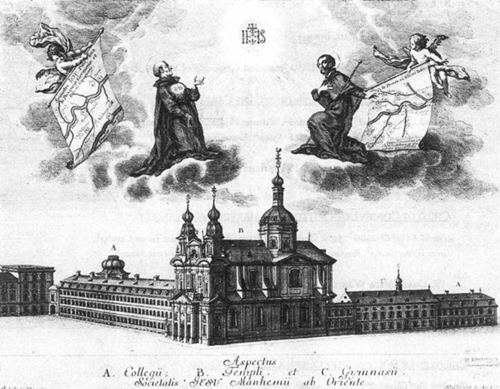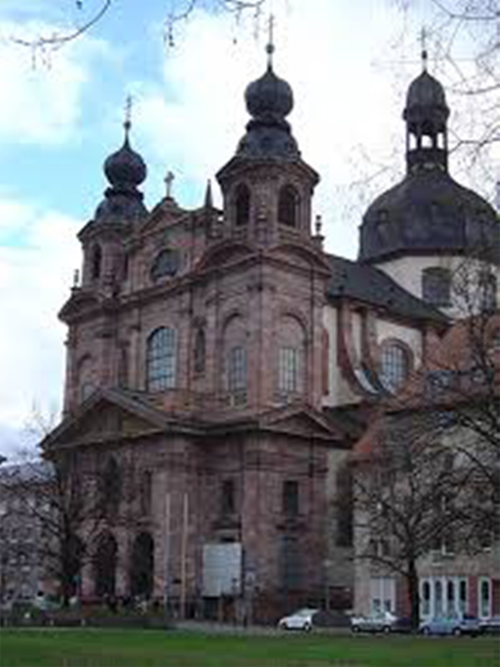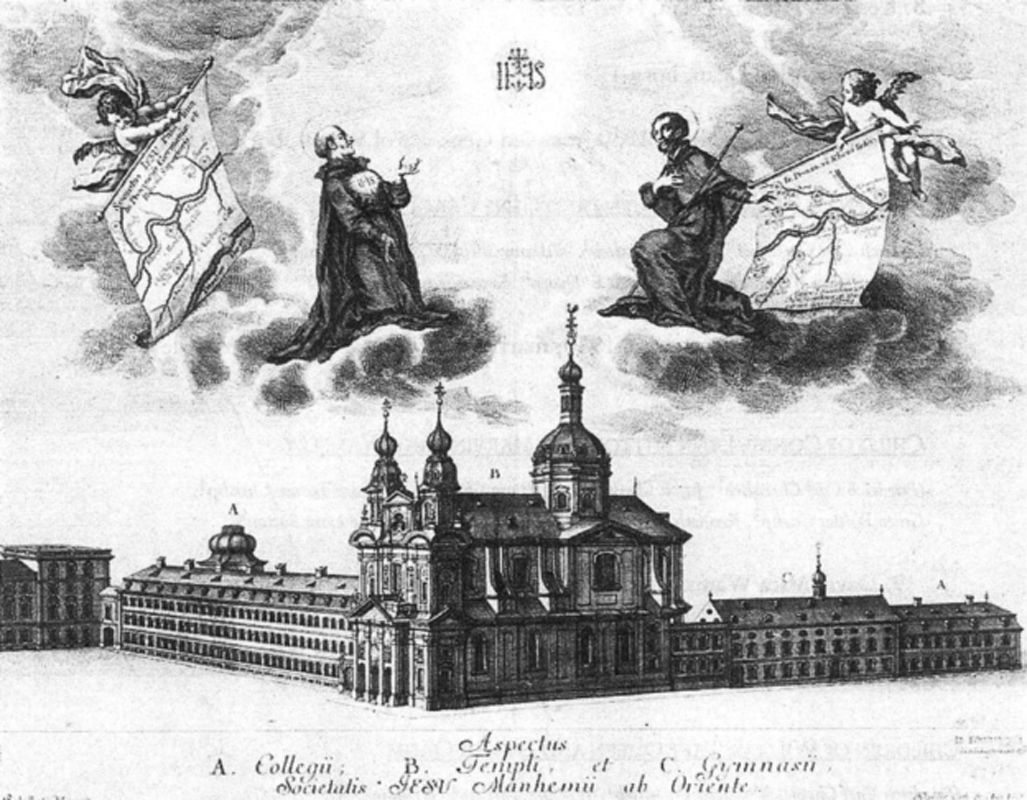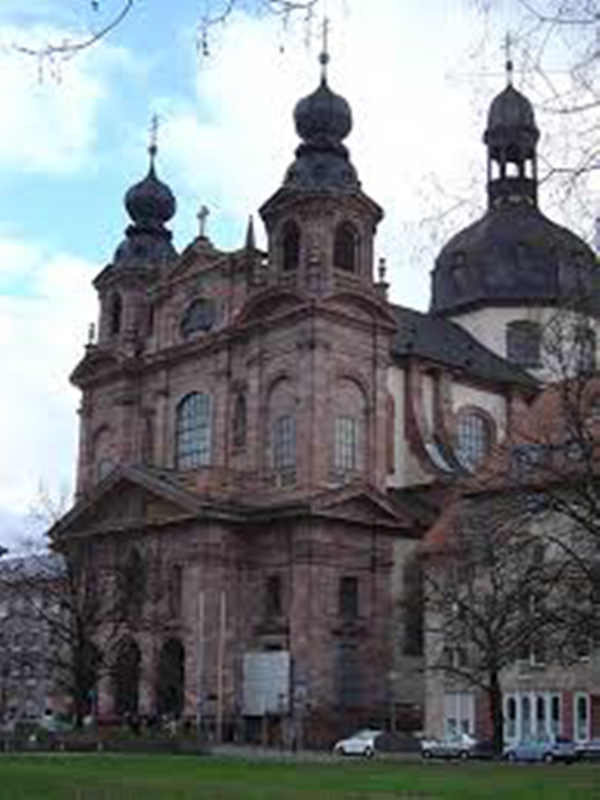Prince Elector Karl Philipp III
— God-Sponsor of Friedrich Carl Christlieb —
Of the three sovereigns who served as God-sponsors, when Friedrich Carl Christlieb converted to Christianity, Prince Elector Karl Philipp III, was the most esteemed. He was of the House of Wittelsbach, a line of Palatine Counts that reached back to the 13th century, when, through marriage, the territory later known as the Upper Palatinate fell to the Wittelsbach Dukes of Bavaria.
This fragmented territory, over which Karl Philipp III ruled, stretched from the left bank of the Upper Rhine, from the Hunsrück mountain range in what is today the Palatinate region in the German federal state of Rhineland-Palatinate and the adjacent parts of the French region of Alsace to the opposite territory on the east bank of the Rhine in present-day Hesse and Baden-Württemberg up to the Odenwald range and the southern Kraichgau region. The capital of this realm was Heidelberg. The great castle there was the residence of the Wittelsbach rulers from 1356 until 1720, when Karl Philipp moved the capital to Mannheim.
Prince Electors were the members of the Electoral College of the Holy Roman Empire. Since the 13th century, they had the privilege of electing the King of the Romans, sovereigns who were later called the Holy Roman Emperor. The dignity of Elector carried great prestige and was second only to King or Emperor.
Religion and Politics
After its beginnings in the early part of the 16th century, the Elector Palatine adopted Lutheranism in the 1530s. Within twenty years, Calvinism became firmly implanted in the Palatinate. By the time of Karl Philipp III, Catholicism had reclaimed a foothold among various German sovereigns, including Karl Philipp, who found himself more and more unpopular in Heidelberg, a capital city deeply rooted in Protestantism.
The Prince arbitrarily moved his capital to nearby Mannheim in 1720. Having begun work in 1698, Karl Philipp converted an old settlement (first mentioned in 766 A.D.) into one of Europe’s most modern cities. His Grand Palace and Jesuit Church were completed in 1760.
Prince Elector Karl Philipp’s Palace and Jesuit Church

A panoramic 180° view of Prince Elector Karl Philipp III’s grand palace. Completed in 1760, after 40 years under construction. Friedrich Carl Christlieb and family would have viewed its magnificence in 1765, when they departed for America from Mannheim. A full quarter mile in length, the structure was badly damaged in World War II. It now serves as the main campus of the University of Mannheim.

Prince Elector Karl Philipp III’s Jesuit Basilica at Mannheim. The complex included The Jesuit Theological College.

A contemporary view of the Jesuit Church of Saint Ignatius and Francis Xavier, at Mannheim. The Jesuit Church claims to be the largest in Mannheim and the finest Baroque church in southwestern Germany. Mozart lived in Mannheim for a year and praised its acoustics and atmosphere.




